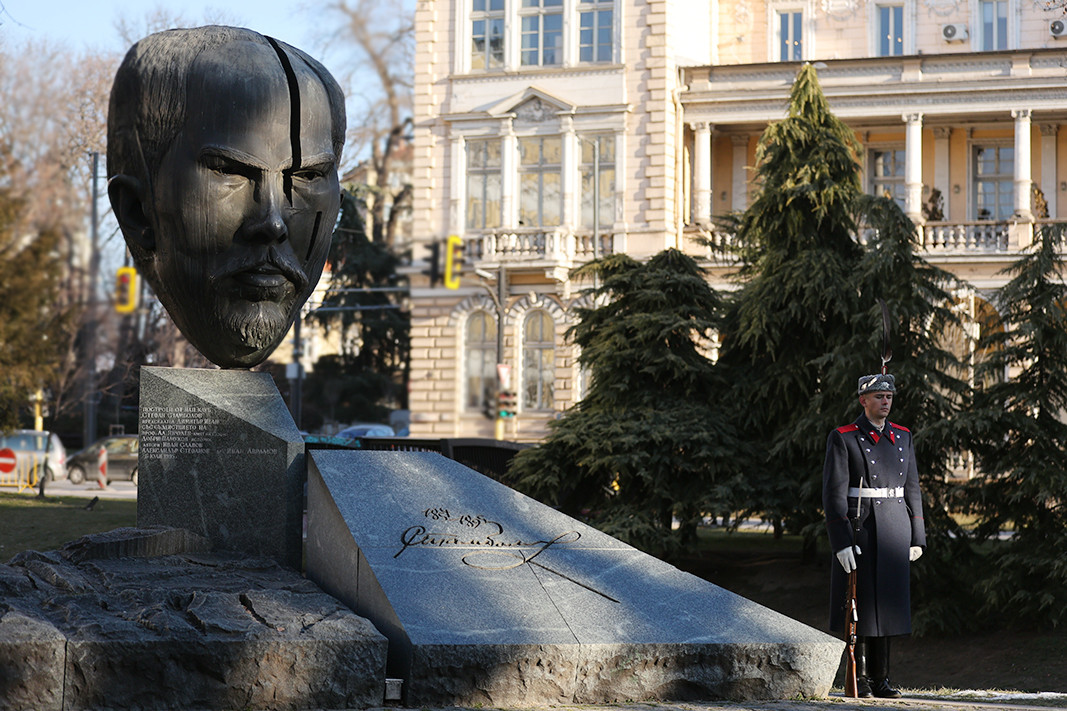Former Prime Minister of North Macedonia Lyubcho Georgievski was a guest in episode 160 of "Corridor 8" podcast by journalists Atanas Velichkov and Dr. Georgi Stankov. For over two and a half hours, the audience asked questions online. Georgievski criticized the fruitless three-year work of the historical commission that should clarify the controversial issues between the two countries and proposed that their meetings be open to the citizens of both countries. It is a fact that to this day there is pressure on people who declare their Bulgarian self-awareness in North Macedonia, Georgievski pointed out and called for a policy against such stigmatization of Macedonian Bulgarians. On the other hand, he defined Bulgaria's veto of North Macedonia's membership in the EU as a short-sighted policy. According to the former Macedonian Prime Minister, one could find the roots of many of the current bilateral problems in the past; in the first half of the 20th century and further back, saying that this has been Bulgarian policy since the times of Prime Minister Stefan Stambolov.
170 years since the birth of Stefan Stambolov, it is good to recall about the policy of one of “the builders of modern Bulgaria” related to the Macedonian question at the end of the 19th century. As a former revolutionary, an active participant in three uprisings for liberation from Ottoman rule - the Stara Zagora Uprising (1875), April Uprising (1876) and Kresna-Razlog Uprising (1878/79), Stambolov was aware of the abilities of Bulgarian revolutionary activity. He also knew very well how easily it could be used by the Great Powers for their own interests and for hybrid actions in the Balkans. According to Stambolov, the Bulgarian state could be the only responsible and legitimate political factor.
The foreign policy framework in which the "dictator", as Stambolov was called by his opponents, operated was the Treaty of Berlin of 1878. At the cost of tearing up the Bulgarian ethnic lands, it ensured peace in the Balkans until 1912. Macedonia was left within the Ottoman Empire, but the treaty included the possibility of reforms and autonomy in the three vilayets inhabited by Bulgarians - Skopje, Bitola and Thessaloniki.

Due to the gross Russian interference in Bulgarian politics after the Unification in 1885, Sofia and Saint Petersburg were in a diplomatic and hybrid war. Stambolov saw that Serbia, under pressure from Austria-Hungary and supported by Russia, had appetites towards Macedonia. Pressured by England and Turkey, Greece also turned eyes towards Macedonia. In order to improve the situation of Bulgarians in the region and to protect them from Greek and Serbian propaganda, the Bulgarian Prime Minister relied on good relations with the High Porte. He strove to expand the educational opportunities of the Bulgarian Exarchate in Constantinople, appointing Bulgarian metropolitans and opening Bulgarian schools in Macedonia.
During the three anti-Ottoman uprisings in which he participated, Stambolov personally experienced the meaning of Vasil Levski's words that one should not play games with the revolutionary impetus of the people. While Stambolov was prime minister, he did not allow the creation of revolutionary committees. However, the Internal Macedonian-Adrianople Revolutionary Organization was established in 1893 by the Bulgarian teachers in the Thessaloniki Gymnasium. In its future activity aimed at the liberation of the Bulgarians in Macedonia, the organization would unofficially coordinate its actions with the Bulgarian state. However, contradictions led to internal strife in the organisation and fatally weakened the Bulgarian cause in Macedonia.
"The history of Macedonia is the most romantic part of Bulgarian history". This is how Bulgarian President Petar Stoyanov answered a provocative question from a Macedonian MP back on April 27, 1997 in Strasbourg in the Parliamentary Assembly of the Council of Europe. "I coined the phrase on the spot... Romantic, because when the revolutionary movement started, the whole of Bulgaria knew about it. This is our second April Uprising. We Bulgarians cannot just tear off this page in our history," Stoyanov said in an interview with BNT years later. Unfortunately, Macedonia is also the most tragic page in Bulgarian history. Part of this tragedy is the fact that in 1895 Stefan Stambolov, the statesman who emancipated and modernized post-liberation Bulgaria, was assassinated in the center of Sofia. The assassination was carried out by Macedonian Bulgarians, led by professional terrorist Naum Tyufekchiev.
Publication in English: Al. Markov
Photos: BTA, library
They call Nikopol “the town of ages” because its history goes back thousands of years. It was founded as a settlement in the year 169 during the reign of Roman Emperor Marcus Aurelius. In 629, theByzantine Emperor renamed the town to Nicopolis, meaning..
There are rumours and speculations that some forgeries, so good that they are not inferior to the originals, could be found among the exhibits in the museums, but at the moment a whole series of forgeries can be seen at an exhibition..
A unique statue from the Roman period of Odessos, preliminarily dated to the late 2nd to the first half of the 3rd century, has been discovered during excavation works near the train station in Varna, said archaeologists from the Varna Regional..
On November 24, the Bulgarian Orthodox Church honors St. Catherine (Sveta Ekaterina in Bulgarian) , who was one of the most educated women of her time...
On November 25, the Bulgarian Orthodox Church honours the memory of St. Clement of Ohrid – a distinguished archbishop, teacher and scholar. He was among..

+359 2 9336 661
